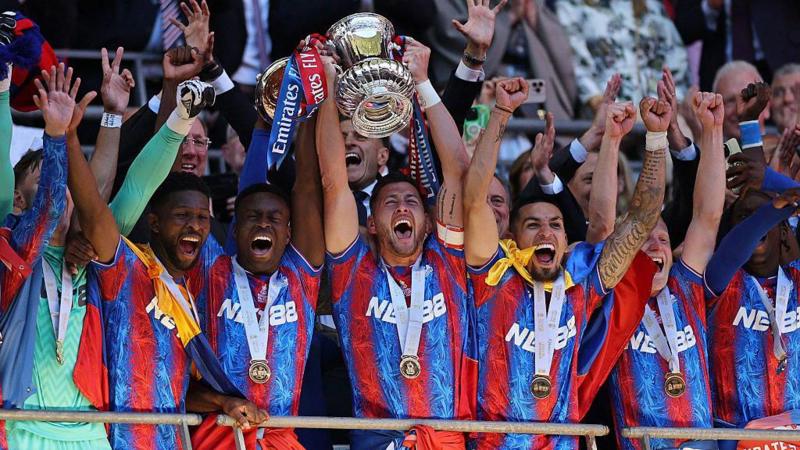Palace Slams Cas and UEFA Following Appeal Loss: Inside the Clash




In a significant development in European football, Crystal Palace's appeal against their demotion from the Europa League to the Conference League has been turned down, a decision that has sparked a considerable amount of controversy and discussion among fans and pundits alike. Club officials expressed deep disappointment, describing the situation as one where "sporting merit is rendered meaningless," highlighting a broader debate about the criteria and fairness in the qualification processes for European competitions.
Crystal Palace's journey in the last season was nothing short of remarkable. Under the guidance of their dynamic coach, the team defied expectations by securing a spot that was initially believed to qualify them for the prestigious Europa League. The fans at Selhurst Park were on cloud nine, anticipating thrilling European nights against some of the continent's most storied clubs. However, the joy was short-lived.
The crux of the matter lies in the intricacies of the UEFA club competition regulations, a set of rules that determine the allocation of places in both the UEFA Champions League and the UEFA Europa League. According to UEFA’s rules, a country’s allocation in these competitions can be influenced by several factors including, but not limited to, the club's performances in domestic leagues and cups, and the national team's coefficient ranking.
For Crystal Palace, their position was initially secure, but adjustments to the final lists of participating teams in European competitions can occur based on final domestic outcomes across Europe and the complex interrelation of qualifications. Unfortunately for Palace, their bubble burst when final placements and the national coefficients of other countries conspired against them, pushing them down into the Conference League, which is considered a less prestigious European competition.
This decision has not only disappointed players and supporters but has also sparked a discourse on whether the current system genuinely rewards sporting achievement or unduly prioritizes other factors, potentially disregarding the efforts and merits of clubs like Crystal Palace. The situation has brought to light questions about the transparency and perceived equity of UEFA’s qualification mechanisms.
In practical terms, the implications for Palace are far-reaching. Financially, the Europa League presents more lucrative opportunities compared to the Conference League. The broadcast rights, sponsorship deals, and match-day revenues associated notably higher in the Europa League could have provided a significant boost to the club’s coffers. Furthermore, competing against higher-profile teams would potentially attract better players and enhance the club's prestige in international football.
Moreover, for the players, the dreams of playing on a bigger European stage against top-tier European competition have been dashed, which can be a morale dampener. While the UEFA Conference League is still a respectable competition, it does not yet carry the glory or the historical gravitas of its older counterparts.
From a broader perspective, incidents like these can affect the perceptions of fairness and the integrity of football governance. The hope among many in the football community is that such cases will lead to a deeper evaluation and possibly, revisions in how teams are selected and placed in UEFA competitions, ensuring a clearer and more meritorious path to European fixtures.
Moving forward, it will be interesting to see how Crystal Palace approaches the forthcoming season in the Conference League. There could well be a silver lining if they use this setback as motivation to excel and possibly win the tournament, a feat that would not only redeem their European aspirations but also send a strong statement about their capabilities on the field.
As it stands, while the decision is a disappointing one for Crystal Palace and its fans, it also serves as a catalyst for discussions on improving the structures that govern European football—a scenario where potentially, meaningful changes could be made to ensure that sporting achievements are duly recognized and rewarded.